Class 10 Exam > Class 10 Notes > English Language for GCSE/IGCSE > Question 3 Demo Answer: Article
Question 3 Demo Answer: Article | English Language for GCSE/IGCSE - Class 10 PDF Download
| Table of contents |

|
| Introduction |

|
| Text and Question |

|
| Article Model Answer |

|
| Unannotated Model Answer |

|
| Summary |

|
Introduction
In this assignment, you'll create a written piece following specific guidelines, drawing inspiration from the content provided in Text C. Your writing might be in one of six potential formats or genres.
- A letter
- A report
- A journal entry
- A speech
- An interview
- An article
The following guide will demonstrate how to answer Question 3 in the format of an article. The task itself is taken from a past exam paper. It includes:
- Text and question
- Article model answer
- Summary
Text and Question
The following passage discusses a drummer who has received an invitation to perform with a jazz band at their upcoming concert, set in an open-air summer venue.
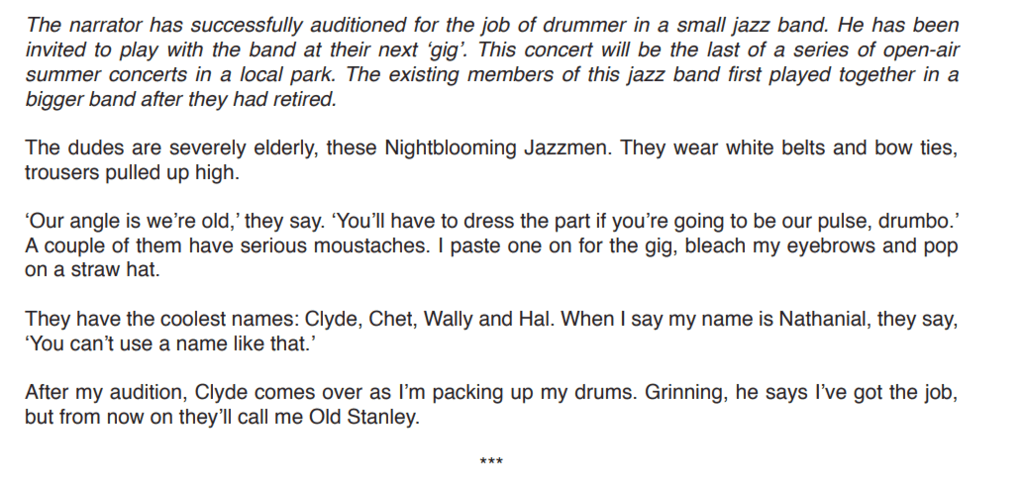
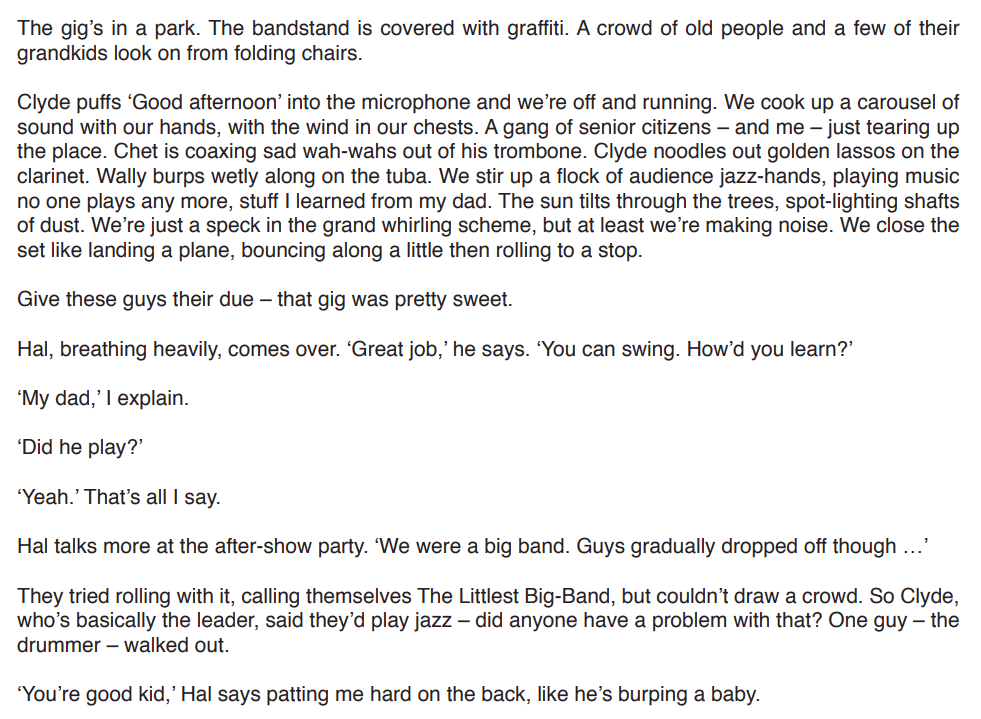


Question:
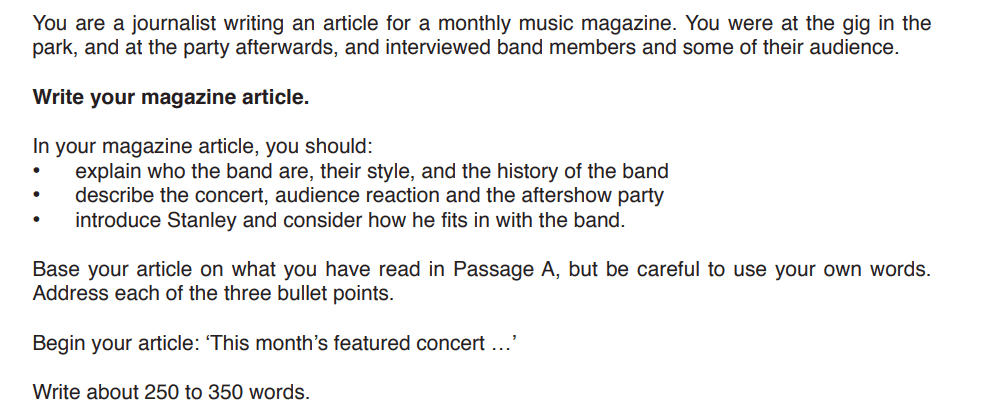
Article Model Answer
The provided response demonstrates a high-scoring article reply based on the given question.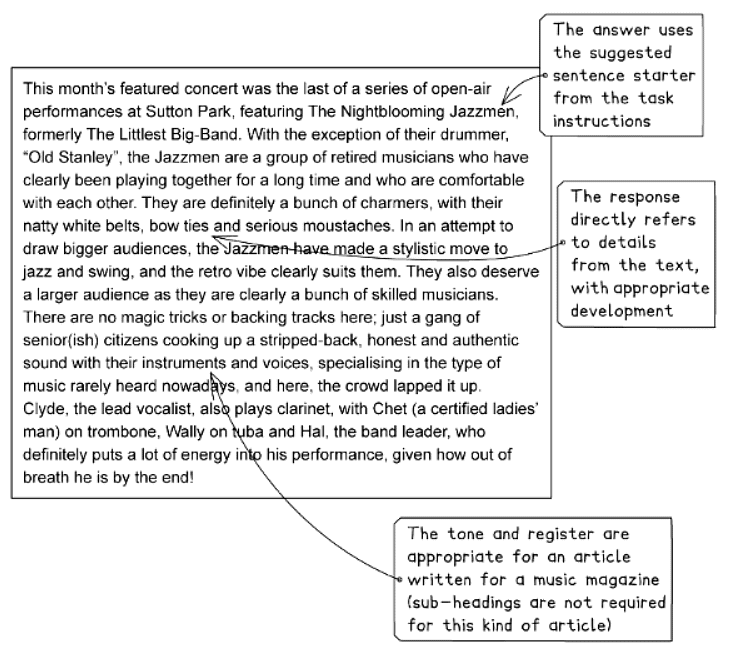
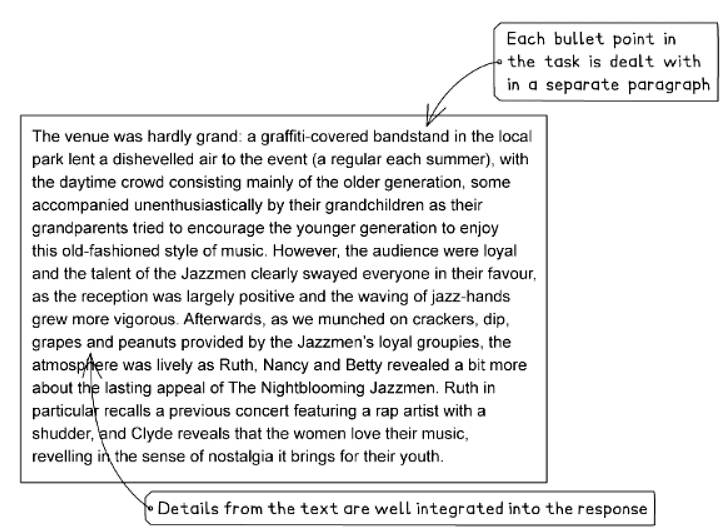
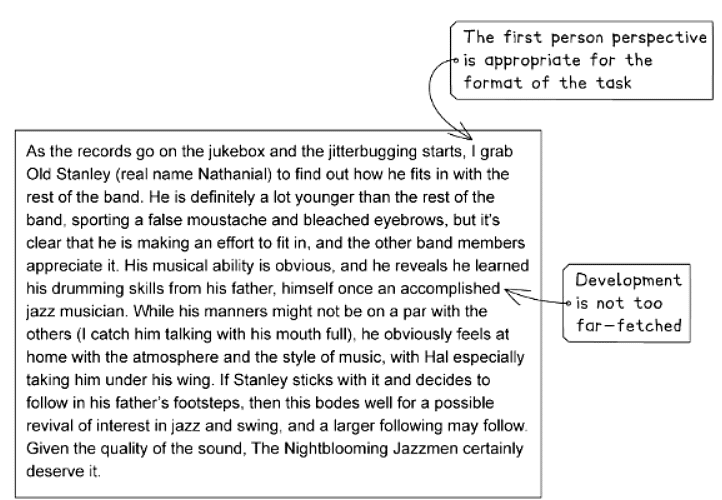
Unannotated Model Answer
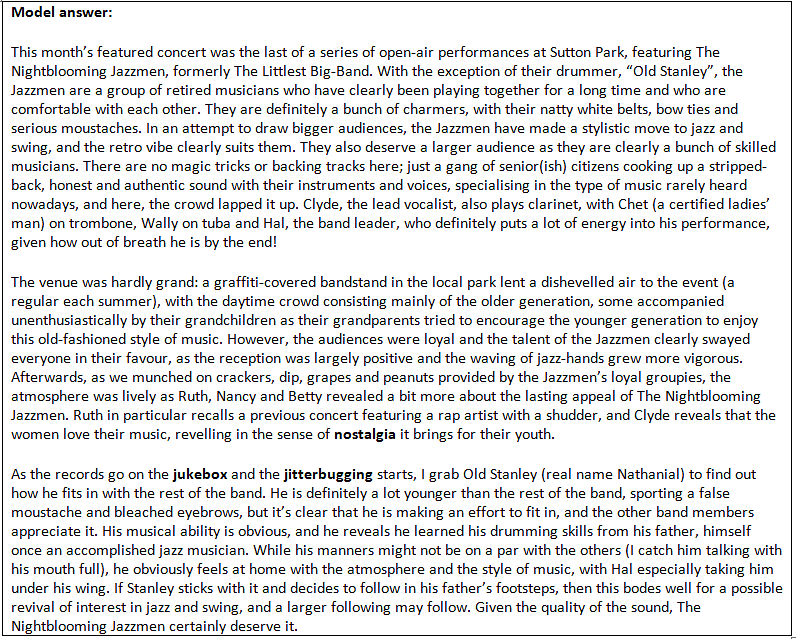
Commentary:
- The answer utilizes the recommended sentence starter provided in the task instructions.
- The response directly cites details from the text, with appropriate elaboration.
- The tone and style are fitting for an article intended for a music magazine, without the necessity for sub-headings.
- Each bullet point in the task is elaborated in a distinct paragraph.
- Details from the text are skillfully integrated into the response.
- The use of the first-person perspective is suitable for the task format.
- The development of ideas is reasonable and not overly speculative.
Summary
- Instructions:
- Ensure clarity on the task's requirements.
- Understand the objectives and actions needed.
- Bullet Points:
- Grasp the central focus of each bullet point.
- Strive for even treatment of all bullet points.
- Text C Relevance:
- Revisit Text C to pinpoint pertinent information.
- Highlight details usable for the response.
- Addressing Bullet Points:
- Sequentially tackle each bullet point.
- Offer balanced attention to all points.
- Voice and Style:
- Select an appropriate voice and style.
- Maintain consistency throughout the response.
- Avoid Repetition:
- Elaborate on ideas beyond mere repetition.
- Display a thorough grasp of the text's meaning.
The document Question 3 Demo Answer: Article | English Language for GCSE/IGCSE - Class 10 is a part of the Class 10 Course English Language for GCSE/IGCSE.
All you need of Class 10 at this link: Class 10
|
16 videos|45 docs
|
FAQs on Question 3 Demo Answer: Article - English Language for GCSE/IGCSE - Class 10
| 1. What are the benefits of practicing past exam papers? |  |
Ans. Practicing past exam papers helps students become familiar with the format of the exam, identify common question types, and improve time management skills.
| 2. How can students effectively use past exam papers for revision? |  |
Ans. Students can use past exam papers to identify their weak areas, focus on key topics, and practice answering questions under timed conditions.
| 3. Are past exam papers an accurate reflection of the actual exam? |  |
Ans. While past exam papers can give students an idea of the type of questions they may encounter, it's important to note that the actual exam may include new or different questions.
| 4. How can students use feedback from past exam papers to improve their performance? |  |
Ans. By reviewing feedback on past exam papers, students can identify areas for improvement, seek help from teachers or tutors, and adjust their study strategies accordingly.
| 5. Can practicing past exam papers guarantee success in the exam? |  |
Ans. While practicing past exam papers can certainly help students prepare for the exam, success ultimately depends on a combination of factors such as understanding the material, effective study habits, and exam strategy.
Related Searches


















